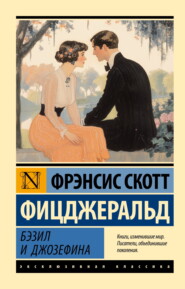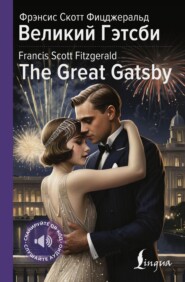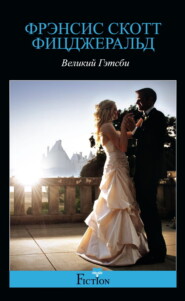По всем вопросам обращайтесь на: info@litportal.ru
(©) 2003-2024.
✖
The Beautiful and Damned / Прекрасные и обреченные. Уровень 4
Жанр
Год написания книги
2020
Теги
Настройки чтения
Размер шрифта
Высота строк
Поля
MAURY: I know – with intellectual lyrics that no one will listen to.
ANTHONY: Why write? The very attempt is purposeless.
DICK: Well, I believe that every one in America should accept a very rigid system of morals – Roman Catholicism, for instance.
(Here the soup arrives and Maury’s words were lost.)
Night
Afterward they bought tickets for a new musical comedy called “High Jinks[12 - High Jinks – «Шумные забавы»].” In the foyer of the theatre they waited a few moments to see crowd.
After the play they parted – Maury was going to dance, Anthony homeward and to bed.
He found his way slowly over the evening mass of Times Square. Faces swirled about him, a kaleidoscope of girls, ugly, ugly as sin – too fat, too lean, floating upon this autumn. Anthony inhaled, swallowing into his lungs perfume and the not unpleasant scent of many cigarettes. He caught the glance of a dark young girl sitting alone in a taxicab.
Two young Jewish men passed him, talking in loud voices. They were wore gray spats and carried gray gloves on their cane handles.
An old lady borne between two men passed. Anthony heard a snatch of their conversation:
“There’s the Astor, mama!”
“Look! See the chariot race sign!”
“There’s where we were today. No, there!”
“Good gracious!”
He turned down the hush, passed a bakery-restaurant. From the door came a smell that was hot, and doughy. Then a Chinese laundry, still open, steamy and stifling. All these depressed him; reaching Sixth Avenue he stopped at a corner cigar store.
Once in his apartment he smoked a last cigarette, sitting in the dark by his open front window. For the first time he thought New York was not bad. A lonesome town, though. Oh, there was a loneliness here.
Chapter II
Portrait Of A Siren
Crispness folded down upon New York a month later, bringing November and the three big football games. Anthony, walking along Forty-second Street one afternoon under a steel-gray sky, met unexpectedly Richard Caramel emerging from the Manhattan Hotel barber shop. It was a cold day, the first definitely cold day, and Caramel stopped Anthony enthusiastically, and, after his inevitable hand shake, said:
“Cold as the devil, I’ve been working like the deuce all day till my room got so cold I thought I’d get pneumonia. That darn landlady is economizing on coal.”
He had seized Anthony’s arm and drawn him briskly up Madison Avenue.
“Where to?”
“Nowhere in particular.”
“Well, then why?” demanded Anthony.
They stopped and stared at each other. After a moment they began walking again.
“You know,” Dick was looking and talking emphatically at the sidewalk. “I have to talk to someone.”
He glanced at Anthony apologetically.
“I have to talk. I do my thinking in writing or conversation.”
Anthony grunted and withdrew his arm gently.
“I mean,” continued Richard Caramel gravely, “that on paper your first paragraph contains the idea you’re going to enlarge.”
They passed Forty-fifth Street. Both of them lit cigarettes and blew tremendous clouds of smoke into the air.
“Let’s walk up to the Plaza,” suggested Anthony. “Come on – I’ll let you talk about your book all the way.”
“I don’t want to if it bores you. I mean you needn’t do it as a favor.”
Anthony protested:
“Bore me? I say no!”
“I’ve got a cousin,” began Dick, but Anthony interrupted.
“Good weather!” he exclaimed, “isn’t it? It makes me feel about ten. Murderous! Oh, God!”
“I’ve got a cousin at the Plaza. A nice girl. We can meet her. She lives there in the winter – with her mother and father.”
“I didn’t know you had cousins in New York.”
“Her name’s Gloria. She’s from Kansas City. Gloria Gilbert. She goes to dances at colleges.”
“I’ve heard her name.”
“Good-looking – in fact attractive.”
They reached Fiftieth Street and turned over toward the Avenue.
“I don’t care for young girls as a rule,” said Anthony, frowning.
This was not true. Any nice girl interested him enormously.
“Gloria is nice – and not a brain in her head.”
Anthony laughed.
“You mean that she can’t talk about literature.”
“No, I don’t.”
“Dick, you like earnest young women who sit with you in a corner and talk earnestly about life. When they were sixteen they argued with grave faces as to whether kissing was right or wrong – and whether it was immoral to drink beer.”
ANTHONY: Why write? The very attempt is purposeless.
DICK: Well, I believe that every one in America should accept a very rigid system of morals – Roman Catholicism, for instance.
(Here the soup arrives and Maury’s words were lost.)
Night
Afterward they bought tickets for a new musical comedy called “High Jinks[12 - High Jinks – «Шумные забавы»].” In the foyer of the theatre they waited a few moments to see crowd.
After the play they parted – Maury was going to dance, Anthony homeward and to bed.
He found his way slowly over the evening mass of Times Square. Faces swirled about him, a kaleidoscope of girls, ugly, ugly as sin – too fat, too lean, floating upon this autumn. Anthony inhaled, swallowing into his lungs perfume and the not unpleasant scent of many cigarettes. He caught the glance of a dark young girl sitting alone in a taxicab.
Two young Jewish men passed him, talking in loud voices. They were wore gray spats and carried gray gloves on their cane handles.
An old lady borne between two men passed. Anthony heard a snatch of their conversation:
“There’s the Astor, mama!”
“Look! See the chariot race sign!”
“There’s where we were today. No, there!”
“Good gracious!”
He turned down the hush, passed a bakery-restaurant. From the door came a smell that was hot, and doughy. Then a Chinese laundry, still open, steamy and stifling. All these depressed him; reaching Sixth Avenue he stopped at a corner cigar store.
Once in his apartment he smoked a last cigarette, sitting in the dark by his open front window. For the first time he thought New York was not bad. A lonesome town, though. Oh, there was a loneliness here.
Chapter II
Portrait Of A Siren
Crispness folded down upon New York a month later, bringing November and the three big football games. Anthony, walking along Forty-second Street one afternoon under a steel-gray sky, met unexpectedly Richard Caramel emerging from the Manhattan Hotel barber shop. It was a cold day, the first definitely cold day, and Caramel stopped Anthony enthusiastically, and, after his inevitable hand shake, said:
“Cold as the devil, I’ve been working like the deuce all day till my room got so cold I thought I’d get pneumonia. That darn landlady is economizing on coal.”
He had seized Anthony’s arm and drawn him briskly up Madison Avenue.
“Where to?”
“Nowhere in particular.”
“Well, then why?” demanded Anthony.
They stopped and stared at each other. After a moment they began walking again.
“You know,” Dick was looking and talking emphatically at the sidewalk. “I have to talk to someone.”
He glanced at Anthony apologetically.
“I have to talk. I do my thinking in writing or conversation.”
Anthony grunted and withdrew his arm gently.
“I mean,” continued Richard Caramel gravely, “that on paper your first paragraph contains the idea you’re going to enlarge.”
They passed Forty-fifth Street. Both of them lit cigarettes and blew tremendous clouds of smoke into the air.
“Let’s walk up to the Plaza,” suggested Anthony. “Come on – I’ll let you talk about your book all the way.”
“I don’t want to if it bores you. I mean you needn’t do it as a favor.”
Anthony protested:
“Bore me? I say no!”
“I’ve got a cousin,” began Dick, but Anthony interrupted.
“Good weather!” he exclaimed, “isn’t it? It makes me feel about ten. Murderous! Oh, God!”
“I’ve got a cousin at the Plaza. A nice girl. We can meet her. She lives there in the winter – with her mother and father.”
“I didn’t know you had cousins in New York.”
“Her name’s Gloria. She’s from Kansas City. Gloria Gilbert. She goes to dances at colleges.”
“I’ve heard her name.”
“Good-looking – in fact attractive.”
They reached Fiftieth Street and turned over toward the Avenue.
“I don’t care for young girls as a rule,” said Anthony, frowning.
This was not true. Any nice girl interested him enormously.
“Gloria is nice – and not a brain in her head.”
Anthony laughed.
“You mean that she can’t talk about literature.”
“No, I don’t.”
“Dick, you like earnest young women who sit with you in a corner and talk earnestly about life. When they were sixteen they argued with grave faces as to whether kissing was right or wrong – and whether it was immoral to drink beer.”

















